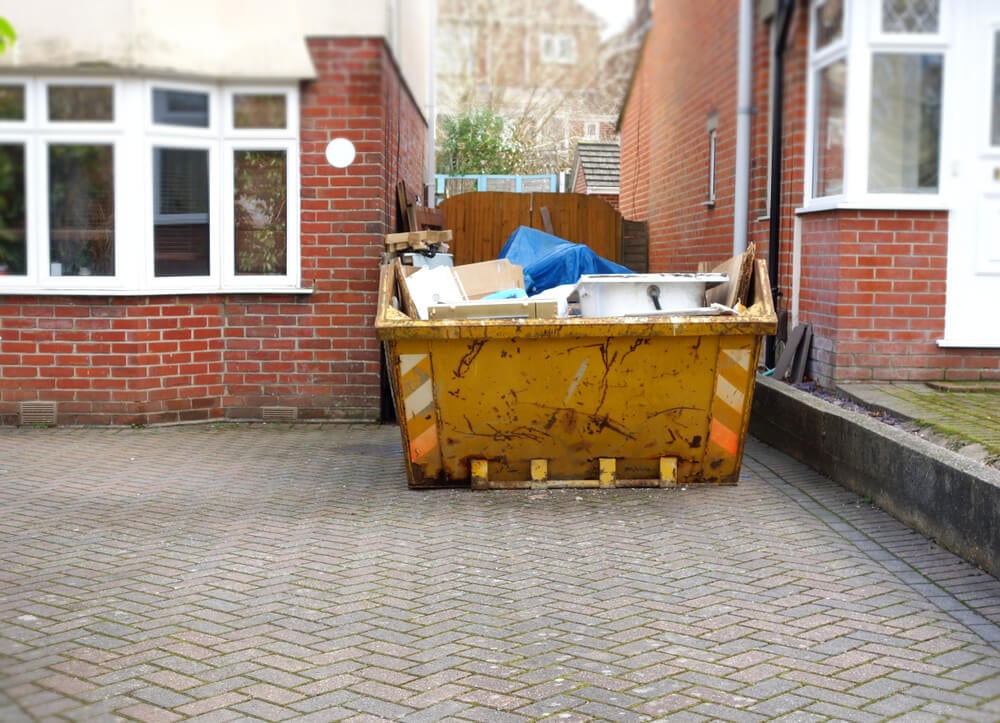If you’re tackling major home improvements or clear-outs and considering skip hire, you might be wondering: what can you put in a skip? Skips aren’t just large bins for random rubbish — knowing what can and can’t go into one is essential for safe and efficient waste disposal.
Whether you’re looking for skip hire in Derby, Ipswich, or anywhere across the UK, SkipHire UK offers affordable, hassle-free services that cater to your waste management needs.
In this guide, we’ll cover the do’s and don’ts of skip waste, how to handle tricky items, which materials are prohibited, and the items that might incur extra charges.
Understanding Different Types of Waste
When hiring a skip, it’s important to know what waste types are permitted and how to manage items that require special disposal. Below are the main waste categories:
1. Household Waste
This category includes everyday items found in a typical home, such as:
- General domestic rubbish
- Non-electrical fittings
- Kitchenware, carpets, and rugs
Note: Some furniture may contain Persistent Organic Pollutants (POPs), which means it cannot go to landfill and requires specialist handling.
Avoid: Hazardous materials like chemicals, batteries, or items containing harmful substances.
2. Garden Waste
Organic waste from gardening or landscaping falls into this category, including:
- Grass cuttings, leaves, and flower trimmings
- Branches, twigs, plants, and shrubbery
- Soil and turf (Note: Weight limits may apply for heavy soil loads.)
For larger projects involving soil, our skips range up to 12 yards to accommodate bulky loads.
3. Building Waste
Skip hire is ideal for renovation or demolition projects. Common building waste includes:
- Bricks, concrete, tiles, and ceramics
- Wood, timber, metals, and plastics
Tip: Ensure heavy materials like bricks don’t exceed the skip’s weight limit to avoid additional charges.
4. Electrical Items
While some small electrical items can go in skips, it’s often better to recycle them separately. Commonly prohibited electrical items include:
- Fridges, freezers, TVs, and monitors
- Washing machines, dryers, microwaves, and ovens
Prohibited Items: What Can’t Go in a Skip?
Some materials cannot be disposed of in skips due to safety or environmental regulations. These include:
- Hazardous Materials: Asbestos, chemicals, and batteries
- Medical Waste: Items posing health risks
- Gas Cylinders: These can explode and need specialist disposal
- Oil, Fuel, and Toxic Substances: Harmful to the environment
Items That May Incur Extra Charges
Certain items require special handling or disposal, which can lead to additional costs:
- Mattresses: Require separate recycling processes
- Tyres: Need specialist treatment due to material composition
- Plasterboard: Must be separated from other waste for recycling
Simplifying Waste Disposal with SkipHire UK
Not sure what can go into your skip? Our team is here to help. With a wide range of skip sizes, online booking, and expert advice, we make skip hire simple and stress-free. Use our Skip Size Calculator for a free, no-obligation quote, or speak to one of our experts today.
If you’re wondering exactly what you can and can’t put in a skip, at SkipHireUK we’re happy to walk you through every step of the skip hire process. Discuss your options with one of our experts today, or try our waste calculator for a free, no-obligation quote.

